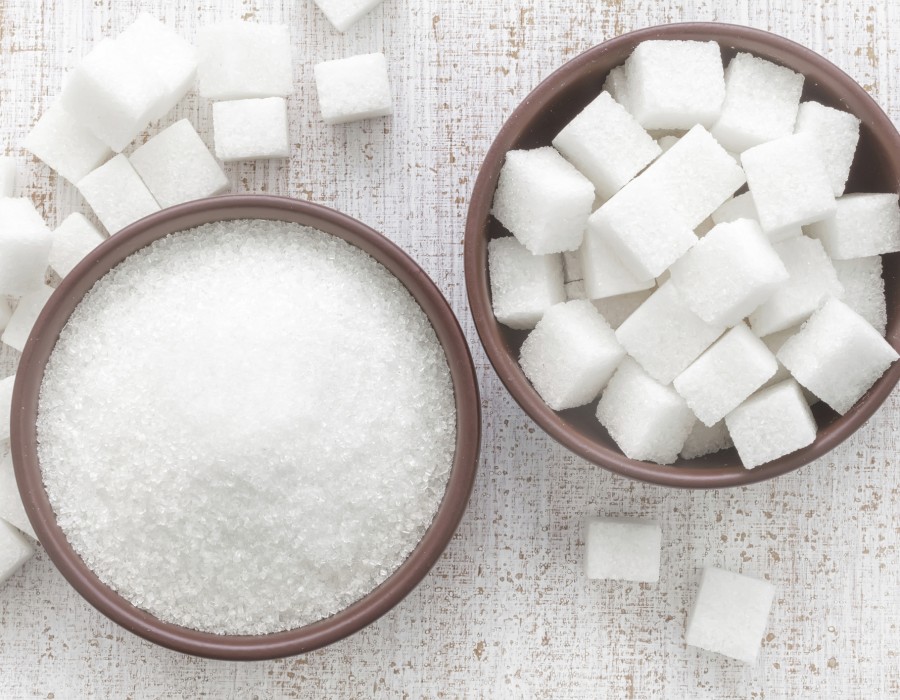You're not alone if you crave something sweet after meals, find it difficult to say no to dessert, or rely on sugary coffee drinks for an afternoon pick-me-up. According to a study published in the journal Appetite in June 2017, 86 percent of participants with food cravings considered high-calorie items, particularly those containing chocolate.
The good news is that eating nutritious foods strong in protein and fiber will help you avoid unwanted cravings.
Side Effects of Eating Too Much Sugar
While sugar is pleasurable to the taste senses and the soul, the continual increases in blood sugar and subsequent crashes can cause a variety of side effects, including exhaustion, anger, and worrisome thoughts, to name a few.
Sugar cravings might be exacerbated by blood sugar swings. When you consume sugar, you end up on a roller-coaster ride of blood sugar dysregulation, which can lead to physical stress, which in turn leads to additional sugar cravings.
Added sugar, which Americans prefer to consume in excess, can be extremely harmful to one's health. Obesity, heart disease, type 2 diabetes, nonalcoholic fatty liver disease, cognitive decline, and some types of cancer are all linked to eating too much, according to a study published in the journal Nutrients in November 2016. Plus, you will need to treat tooth decay and other oral issues caused by eating too much sugar.
According to the 2015–2020 US Dietary Guidelines for Americans, added sugar should account for no more than 10% of daily calories. If you eat 2,000 calories per day, this is the equal of 200 calories or 12 teaspoons (tsp). For example, one can of Coke has around 9 teaspoons of sugar.
Which Factors Are Causing You to Crave Sugar?
Sugar cravings can hit seemingly at random, and there may be more than one cause. The following are some of the possible causes:
Dehydration
Thirst might resemble hunger or a food need, according to Elia. People responded "inappropriately" to hunger and thirst cues 62 percent of the time, according to an earlier study. They were thirsty but not hungry, but they ate anyway.
Poor Diet Quality
Sugar cravings can also be triggered by the quality of one's diet. Consuming a higher ratio of carbohydrates to protein and good fats, or white, refined carbohydrates such as those found in processed foods, for example, might increase hunger and sugar cravings. If you have a yearning for anything else 90 minutes or two hours after a meal, think about what you just ate and what was lacking.
According to an article published in April 2018 in Metabolic Interaction in Infection, gut dysbiosis, or an imbalance of bacteria in the gut, or an overgrowth of yeast, for example, might contribute to sugar cravings. Probiotics, prebiotics, and better eating habits, according to a prior study, can change the balance of good and harmful bacteria in the gut and reduce food cravings, however additional research is needed.
Hormonal Changes
Sugar cravings in women can be influenced by hormones such as estrogen, progesterone, and estradiol (or oestradiol). Estradiol levels rise during the menstrual cycle to mature and release an egg, as well as thicken the uterus lining to allow the fertilized egg to implant, according to the Hormone Health Network.
Estradiol has been linked to an increase in food desires, according to research. Women with higher estradiol during the luteal phase of their menstrual cycle, or the time after ovulation, consumed carbohydrate-rich diets and experienced an increase in sugar cravings, according to a study published in April 2016 in The FASEB Journal.
Stress
Finally, sugar cravings might be triggered by stress. Chronic stress had a large direct effect on food cravings, and food cravings had a significant effect on body mass index (BMI) when indulged, according to a previous study.
Consuming sugar can deliver a burst of dopamine, a neurotransmitter dubbed "the happy hormone," when levels of cortisol, the so-called stress hormone, rise. Sugar, on the other hand, can throw blood sugar out of whack when ingested in excess, causing stress and starting up a vicious cycle.
Nutrient Deficiencies
Sugar cravings can also be caused by mineral deficiencies such as zinc, chrome, iron, calcium, and magnesium.
Magnesium deficiency is very important to be aware of. According to a study published in the Journal of Osteopathic Medicine in March 2018, up to 50% of persons may have a magnesium shortage, which has been linked to an increased risk of insomnia in the elderly. Meanwhile, according to a December 2018 research in Nutrients, magnesium shortage is linked to increased stress, worry, and depression – mental health impacts that can interfere with good sleep.






Comments